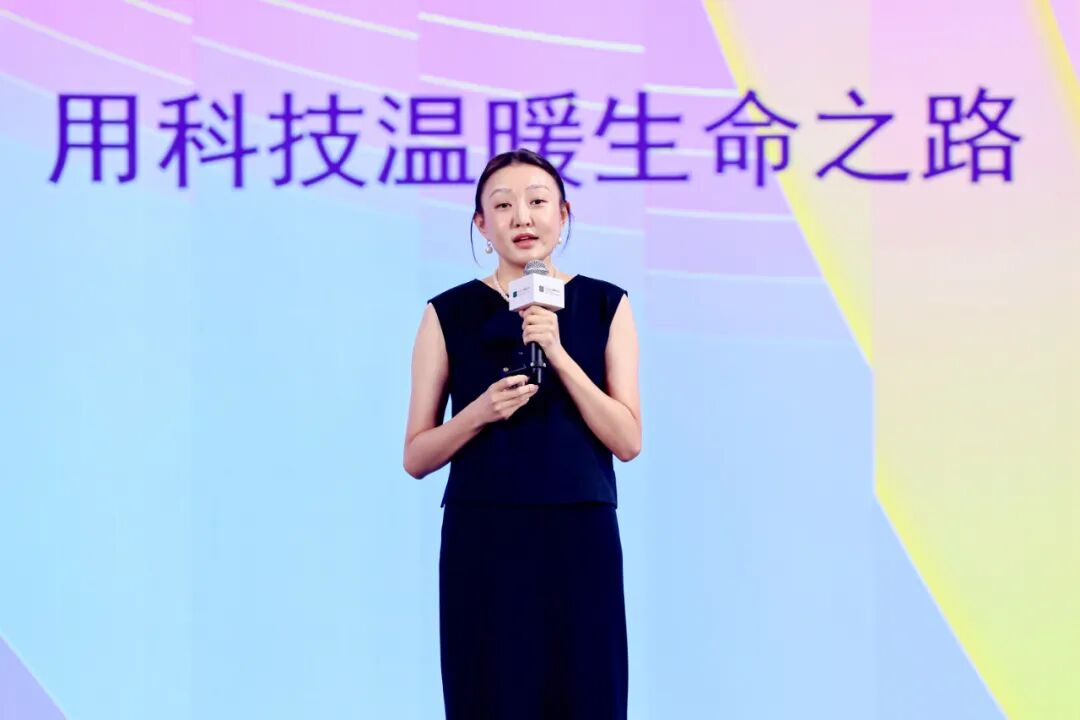Yidu Tech’s Gong Rujing: Using AI to Embark on a Long March Toward Inclusive Healthcare
2025-09-10
A cup of tea and a mandala painting are Gong Rujing’s secrets to balancing her career and inner peace as a female entrepreneur in medical technology. As the founder and chairwoman of Yidu Tech, she believes that AI will not replace humans, but those who use AI will replace those who do not.
From August 30 to 31, the "Resilience and Innovation for the Future" 2025 Her Village International Forum was held in Beijing. In an interview with Phoenix Net Charity, Gong Rujing shared her explorations and persistence in the field of medical AI as a female entrepreneur. "Although the current intelligent agents in specialized fields are not yet perfect, we have moved beyond the starting point, and they are already sufficiently practical."
"In 2014, I proposed data intelligence and green healthcare, positioning Yidu Tech’s strategy around 'one infrastructure and two applications,'" she explained. "One infrastructure" refers to data infrastructure, which processes hospital and government data into machine-readable and usable information. "Two applications" address the issues of "why healthcare is expensive and difficult" and "why new drug development is too costly, with a decade and $1 billion ultimately paid by patients."
"Today, intelligent platforms have been implemented in over 100 leading hospitals across the country, and these platforms are gradually evolving into AI mid-offices." As Yidu Tech marks its 10th anniversary, it has achieved significant milestones. Gong Rujing revealed that the company has processed and analyzed over 6 billion authorized medical records, covering a network of more than 4,000 hospitals. It has also reduced costs for new drug.

And clinical trials by 30%-50%, and its inclusive insurance initiatives have reached tens of millions of people.
She recognizes that this is a true intelligent revolution with profound significance. "In the intelligent agents co-developed with hospitals, many already surpass human capabilities."
However, as AI penetrates deeper into healthcare, challenges emerge. Gong Rujing openly addresses the issues of algorithmic bias and data accuracy in medical AI研发. "Among the 800-plus AI software approvals by the FDA last year, 671 were for clinical imaging, yet these algorithms underperform in disease diagnosis, particularly with greater biases against women and people of color."
Based on this, she and her team have a clear and firm solution: "Providers of AI software need to focus on patient data from target markets and build sufficient knowledge bases to reduce AI hallucinations and improve accuracy."
This is a lengthy process, but she sees hope. "Over 800 approvals and 600-plus AI software represent a strong beginning." She also believes in the power of iteration: "AI technology evolves 24/7. Once data biases or accuracy issues are identified, they can be quickly improved through closed-loop scenarios."
Outside of work, Gong Rujing learns from AI. "Nowadays, learning AI doesn’t require going to university. You can start from your own needs and gradually familiarize yourself with AI tools. For example, programming has become simpler—I can even write code with AI." Therefore, she advises more female professionals to learn from AI, as it will be "the most critical direction" in the future.
At Yidu Tech, 50% of the board members are women, and 55% of the employees are women. As a mother of three and an entrepreneur, she deeply believes that female entrepreneurs and professionals, having experienced the cycles of life, illness, and death more profoundly, possess greater empathy, reverence for life, and resilience.
As for whether artificial intelligence will impact the future of female professionals, Gong Rujing remains optimistic: "In the short term, AI may bring challenges to female professionals, but in the medium to long term, it is a significant positive. The emergence of AI and data intelligence platforms means that 95% of diseases require solutions, which will create greater market demand and more opportunities for human resources."
There are no shortcuts or endpoints in healthcare. Gong Rujing maintains a long-distance runner’s mindset: "The medical field currently understands only 5% of human diseases. Simulating a single cell is still at the stage of collecting 3D images, let alone simulating tissues and entire body metabolism."
Therefore, using AI technology to make healthcare more inclusive is the direction she and her team will continue to pursue. She knows she has a resilient mission: to enable every family and every patient to inherit a healthier world.
本文为原创内容,仅供知识分享之目的,若存在侵权行为或疏漏,请与本平台联系,我们将及时处理。如需转载请后台留言,需征得本平台同意且注明来源转载。








